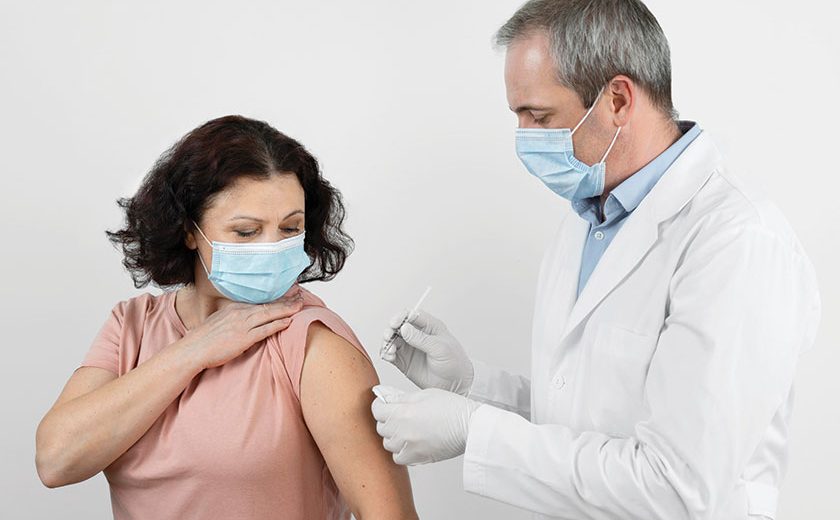The question most asked everywhere about the Covid-19 vaccine is, if it’s safe for us. Based on the available data, most of the COVID-19 vaccines are safe, according to Dr. G.S.Sridhar, Consultant Cardiologist and Physician, Sri Kota Specialist Medical Centre.
“It is normal to feel some side effects after the vaccine is administered, and it does not mean you’re infected with the disease itself. Many people think that the vaccine contains the disease, however that is not true. Instead, the vaccine allows your immune system to recognise and fight the infection they are designed to protect against.At the moment, there is no safety data available for pregnant women, children, and adolescents (under 16 years for Pfizer-BioNTech vaccine, and under 18 years for other available vaccines),” he shared. Natural Health sat down to a Q & A with Dr G.S.Sridhar to uncover more about the topic.
NH: What are some of the common but harmless side effects of the vaccine?
Dr G.S. Sridha: So far, the reported side effects have been mild to moderate and consist of short-lasting symptoms such as fever, nausea, myalgia, headache, chills, diarrhoea and soreness or redness at the area injected.
NH: What are some of the more serious side effects of the vaccine so far that people have experienced?
Dr G.S. Sridha: Serious side effects like severe allergic reactions are extremely rare.
Based on the availabe data on serious side effects, the AstraZeneca and the Pfizer-BioNTech vaccine reported approximately 1 in 100,000 people. The Moderna vaccine reported approximately 1 in a million people.
NH: What will happen if I refuse to be vaccinated against the COVID-19 virus?
Dr G.S. Sridha: It is impossible for anyone to be forced to take the COVID-19 vaccine, but there could be real life consequences to refusal. For instance, individuals who refuse vaccination may miss out on returning to the workplace, or could face other restrictions like group gatherings or travel restrictions as many countries are deciding on immunity passports.
Most importantly we must achieve herd immunity to protect ourselves from COVID-19. To achieve herd immunity at least 70% of the population needs to develop immunity either by exposure to COVID-19 virus or through vaccination, without vaccination it will take far longer to achieve immunity against the virus.
NH: How long will the vaccine protect me from COVID-19?
Dr G.S. Sridha: There is not enough data to provide an accurate timeline of how long the vaccine will protect you against the virus as researchers around the world continue to explore this. So far, available data suggest that those who have been vaccinated should be protected from COVID-19 for a minimum of 4 months. Ultimately it depends on the vaccine administered, and only more data over time will tell.
There have been rare cases where some people contracted the virus twice, often milder symptoms the latter time. Researchers are now studying how long immunity lasts when contracting the virus for the first time. The data from this can help vaccine developers look for ways to boost the effectiveness of the vaccines so that it provides longer periods of protection form the virus, compared to the temporary immunity gained after being infected by the virus through transmission.
NH: What exactly is the criteria when it comes to who or which group should be first in line for the vaccine?
Dr G.S. Sridha: Based on our country’s National COVID-19 Immunisation Programme, the recommendations were made with these goals in mind:
- Vaccinate 80% of Malaysia’s adult population by February 2022 to reduce infections, hospitalisations and death
- Ensure that our healthcare system continues to operate optimally
- Reduce the burden of disease for those in high-risk groups
- Control the pandemic in high-risk areas through risk assessments
The Malaysian Government has proposed a 3 phased strategy as mentioned below:
Phase 1 (February – April 2021)
Priority Group 1: Frontliners comprising of public and private healthcare personnel
Priority Group 2: Frontliners consisting of essential services, defense and security personnel
Phase 2 (April – August 2021)
Priority Group 1: Remainder of healthcare workers as well as those in essential services and defence and security personnel
Priority Group 2: Senior citizens (those aged 60 and over), high-risk group with chronic diseases such as heart disease, obesity, diabetes and high blood pressure and people with disabilities (OKU)
Phase 3 (May 2021 – February 2022)
Priority Group: Adult population aged 18 years and above (citizens & noncitizens)
Priority will be given to those in the red zones; followed by those in yellow zones and finally those in green zones
Those ages 18 and below have been excluded from the vaccine programme as clinical trials for that age group are still ongoing, the Government will consider vaccinating this age group once there is enough data to deem it safe
NH: Will an individual who is sick with the flu or fever be eligible for the vaccine, and why?
Dr G.S. Sridha: With all vaccines, not just the COVID-19 ones, it is suggested that you only get the vaccine when you have made a full recovery. The reason being if you begin to exhibit symptoms, your doctor can differentiate between the pre-existing illness or a result of the vaccine.
 Q & A with Dr. G.S.Sridhar
Q & A with Dr. G.S.Sridhar
Consultant Cardiologist and Physician,
Sri Kota Specialist Medical Centre


